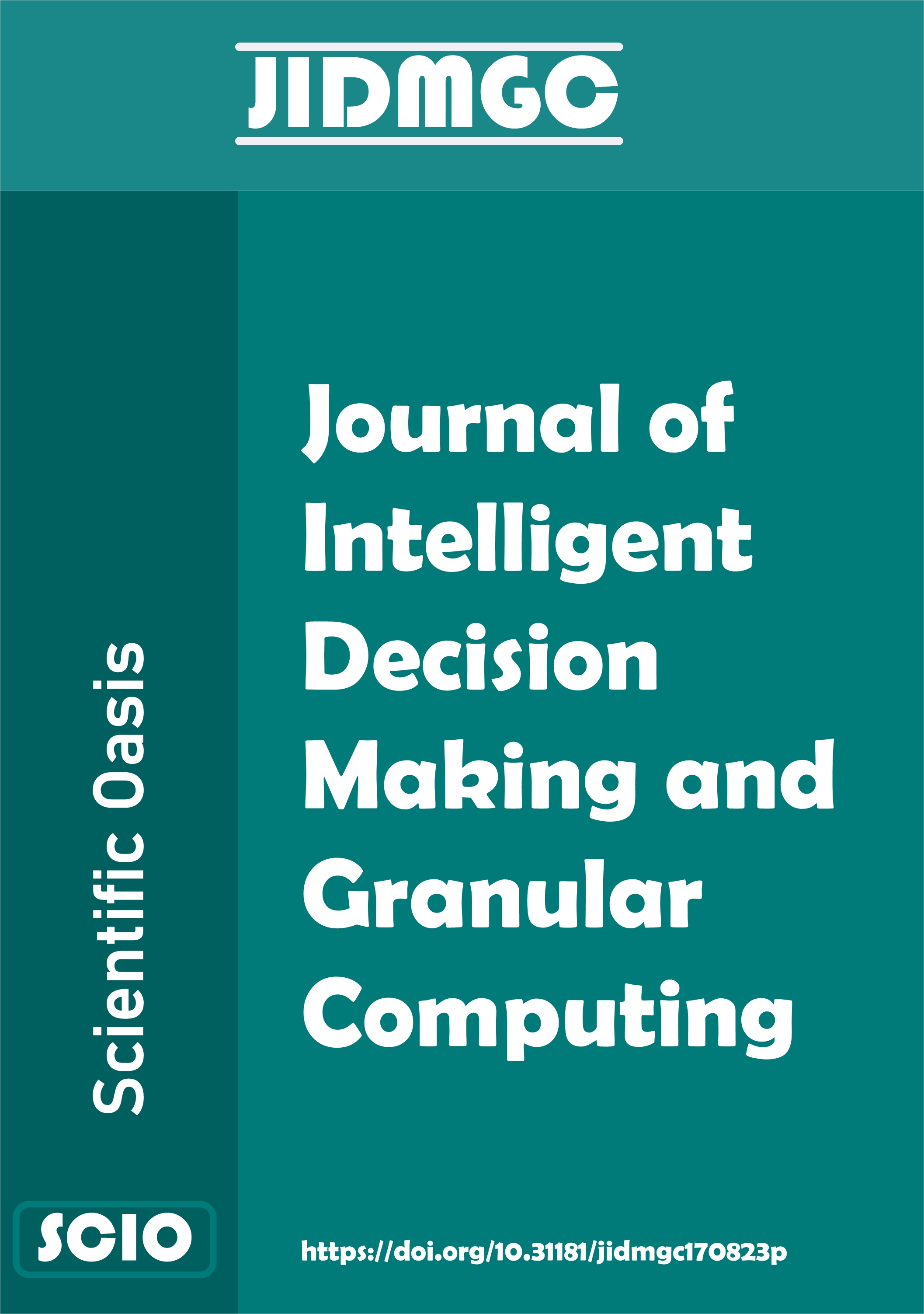Multi-Year Performance Evaluation and Trend Tracking of Sustainable Suppliers: An Application of a Hybrid Decision Analysis Model
DOI:
https://doi.org/10.31181/jidmgc1120256Keywords:
Sustainable Supply Chain Management (SSCM), Supplier Selection, Multi-Criteria Decision Making (MCDM), Z-DEMATEL, PROMETHEE-AL, Granular Computing, Electronics IndustryAbstract
Amid growing global emphasis on sustainability and supply chain transparency, enterprises—particularly in the resource-intensive electronics manufacturing sector—face increasing pressure to integrate sustainable criteria into supplier performance evaluations. This study develops a multi-year supplier assessment framework that enhances conventional evaluation practices by incorporating sustainability-oriented indicators. Building on a real-world case from a publicly listed Taiwanese electronics manufacturer, the proposed model systematically analyzes the annual performance trends of key suppliers. To address expert judgment uncertainty and confidence, this study employs a Z-numbers-based Decision Trial and Evaluation Laboratory (Z-DEMATEL) technique, which integrates Z fuzzy theory to model the interdependencies among evaluation criteria while capturing the inherent ambiguity and subjectivity of expert assessments. The resulting influence weights inform the subsequent application of PROMETHEE-AL (Preference Ranking Organization Method for Enrichment Evaluation based on Aspiration Level), a preference ranking method incorporating aspiration levels, to aggregate supplier performance scores. This dual-method approach allows for the inclusion of ideal target levels in the ranking process, thereby increasing decision relevance and interpretability. The model is applied to historical data spanning multiple years to identify suppliers with stable or improving performance trajectories, while also flagging declining suppliers for managerial intervention. Empirical findings indicate a continued emphasis on traditional criteria such as cost, quality, and delivery, with sustainability-related indicators receiving limited weight—highlighting an opportunity for strategic improvement in the company’s sustainability transition. The proposed integrated Z-DEMATEL and PROMETHEE-AL model not only strengthens the scientific and practical robustness of supplier evaluations but also supports long-term strategic planning and sustainable supplier development. The methodology can be readily adapted for use in other industry settings seeking to balance operational excellence with sustainability goals.
Downloads
References
Saputro, T. E., Rosiani, T. Y., Mubin, A., Dewi, S. K., & Baroto, T. (2024). Green supplier selection under supply risks using novel integrated fuzzy multi-criteria decision making techniques. Journal of Cleaner Production, 449, 141788. https://doi.org/10.1016/j.jclepro.2024.141788
Jain, N., & Singh, A. (2020). Sustainable supplier selection under must-be criteria through Fuzzy inference system. Journal of Cleaner Production, 248, 119275. https://doi.org/10.1016/j.jclepro.2019.119275
Ecer, F., & Pamucar, D. (2020). Sustainable supplier selection: A novel integrated fuzzy best worst method (F-BWM) and fuzzy CoCoSo with Bonferroni (CoCoSo'B) multi-criteria model. Journal of Cleaner Production, 266, 121981. https://doi.org/10.1016/j.jclepro.2020.121981
Stević, Ž., Pamučar, D., Puška, A., & Chatterjee, P. (2020). Sustainable supplier selection in healthcare industries using a new MCDM method: Measurement of alternatives and ranking according to COmpromise solution (MARCOS). Computers & Industrial Engineering, 140, 106231. https://doi.org/10.1016/j.cie.2019.106231
Chang, T.-W., Pai, C.-J., Lo, H.-W., & Hu, S.-K. (2021). A hybrid decision-making model for sustainable supplier evaluation in electronics manufacturing. Computers & Industrial Engineering, 156, 107283. https://doi.org/10.1016/j.cie.2021.107283
Giannakis, M., Dubey, R., Vlachos, I., & Ju, Y. (2020). Supplier sustainability performance evaluation using the analytic network process. Journal of Cleaner Production, 247, 119439. https://doi.org/10.1016/j.jclepro.2019.119439
Chen, Z., Ming, X., Zhou, T., & Chang, Y. (2020). Sustainable supplier selection for smart supply chain considering internal and external uncertainty: An integrated rough-fuzzy approach. Applied Soft Computing, 87, 106004. https://doi.org/10.1016/j.asoc.2019.106004
Afrasiabi, A., Tavana, M., & Di Caprio, D. (2022). An extended hybrid fuzzy multi-criteria decision model for sustainable and resilient supplier selection. Environmental Science and Pollution Research, 29(25), 37291–37314. https://doi.org/10.1007/s11356-021-17851-2
Menon, R. R., & Ravi, V. (2022). Using AHP-TOPSIS methodologies in the selection of sustainable suppliers in an electronics supply chain. Cleaner Materials, 5, 100130. https://doi.org/10.1016/j.clema.2022.100130
Liou, J. J., Chang, M.-H., Lo, H.-W., & Hsu, M.-H. (2021). Application of an MCDM model with data mining techniques for green supplier evaluation and selection. Applied Soft Computing, 109, 107534. https://doi.org/10.1016/j.asoc.2021.107534
Giri, B. C., Molla, M. U., & Biswas, P. (2022). Pythagorean fuzzy DEMATEL method for supplier selection in sustainable supply chain management. Expert Systems with Applications, 193, 116396. https://doi.org/10.1016/j.eswa.2021.116396
Guo, R., & Wu, Z. (2023). Social sustainable supply chain performance assessment using hybrid fuzzy-AHP-DEMATEL-VIKOR: A case study in manufacturing enterprises. Environment, Development and Sustainability, 25(11), 12273–12301. https://doi.org/10.1007/s10668-022-02565-3
Hsu, W.-C. J., Liou, J. J., & Lo, H.-W. (2021). A group decision-making approach for exploring trends in the development of the healthcare industry in Taiwan. Decision Support Systems, 141, 113447. https://doi.org/10.1016/j.dss.2020.113447
Lo, H.-W., Chan, H.-W., Lin, J.-W., & Lin, S.-W. (2024). Evaluating the interrelationships of industrial 5.0 development factors using an integration approach of fermatean fuzzy logic. Journal of Operations Intelligence, 2(1), 95–113. https://doi.org/10.31181/jopi21202416
Wang, M.-H., Chen, C.-C., Chen, K.-Y., & Lo, H.-W. (2023). Leadership competencies in the financial industry during digital transformation: An evaluation framework using the Z-DEMATEL technique. Axioms, 12(9), 855. https://doi.org/10.3390/axioms12090855
Tong, L. Z., Wang, J., & Pu, Z. (2022). Sustainable supplier selection for SMEs based on an extended PROMETHEE Ⅱ approach. Journal of Cleaner Production, 330, 129830. https://doi.org/10.1016/j.jclepro.2021.129830
Shang, Z., Yang, X., Barnes, D., & Wu, C. (2022). Supplier selection in sustainable supply chains: Using the integrated BWM, fuzzy Shannon entropy, and fuzzy MULTIMOORA methods. Expert Systems with Applications, 195, 116567. https://doi.org/10.1016/j.eswa.2022.116567
Wu, C., Gao, J., & Barnes, D. (2023). Sustainable partner selection and order allocation for strategic items: An integrated multi-stage decision-making model. International Journal of Production Research, 61(4), 1076–1100. https://doi.org/10.1080/00207543.2022.2025945
Lo, H.-W. (2023). A data-driven decision support system for sustainable supplier evaluation in the Industry 5.0 era: A case study for medical equipment manufacturing. Advanced Engineering Informatics, 56, 101998. https://doi.org/10.1016/j.aei.2023.101998
Chai, N., Zhou, W., & Jiang, Z. (2023). Sustainable supplier selection using an intuitionistic and interval-valued fuzzy MCDM approach based on cumulative prospect theory. Information Sciences, 626, 710–737. https://doi.org/10.1016/j.ins.2023.01.070
Tayyab, M., & Sarkar, B. (2021). An interactive fuzzy programming approach for a sustainable supplier selection under textile supply chain management. Computers & Industrial Engineering, 155, 107164. https://doi.org/10.1016/j.cie.2021.107164
Downloads
Published
Issue
Section
License
Copyright (c) 2025 Huai-Wei Lo, Kuang-Yi Li, Sheng-Wei Lin (Author)

This work is licensed under a Creative Commons Attribution 4.0 International License.













 All site content, except where otherwise noted, is licensed under the
All site content, except where otherwise noted, is licensed under the 